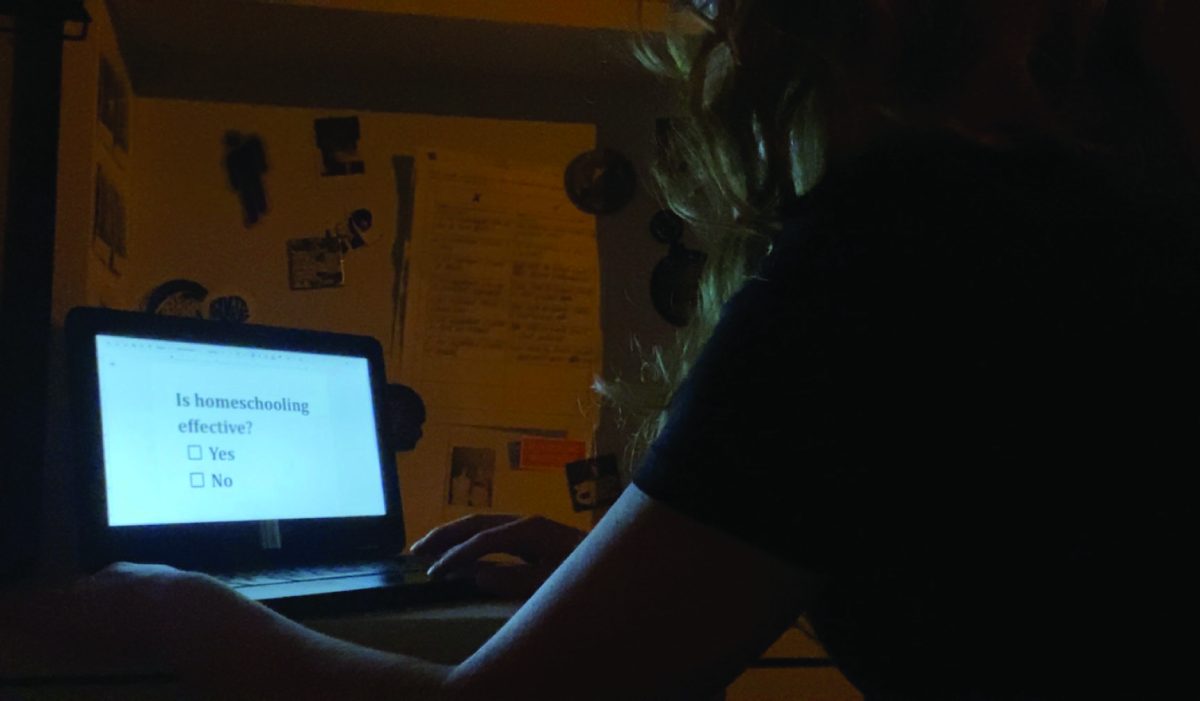Gotta Go
Opinion: Students should be able to go to the bathroom whenever they need
May 26, 2022
Between the teen vaping epidemic sweeping the nation, vandalism incited by social media (we all remember Devious Licks), and general boredom stemming from not-so-fun classes, school staff aren’t totally in the wrong for restricting bathroom visits. But when concerning a subject as sensitive as a restroom rendezvous, people may just have to accept that while many students may abuse their bathroom rights, it’s not okay for teachers and administrators to prevent kids from going to the bathroom.
In a survey of 77 Lincoln Southeast High School (LSE) students, 78.9 percent say passing periods at LSE aren’t long enough for students to go to the bathroom and still make it to class on time. 79.2 percent don’t support the “First 10 Last 10” rule, which deters students from leaving class to go to the bathroom in the first and last ten minutes of their classes.
But there is reasoning behind teachers saying no when a student asks to go to the bathroom. Even some students agree that many kids leave class under a restroom ruse to spend time on their phones, talking to friends, etc. 25 percent of respondents in the survey agreed that the majority of kids who leave class to go to the bathroom do so to skip class.
“The student expectation is, you go in, you go to the bathroom, and you leave,” LSE administrator Crystal Folden said. “It’s not a place to hang out and loiter. When students understand that being out of [class] really does negatively impact them, people follow those expectations.”
When students follow expectations and rules regarding leaving class, that’s when some teachers have chosen to loosen restrictions, such as allowing them to go to the bathroom without asking or letting more than one student go at once. While the principle idea of having kids understand that leaving class can negatively impact them makes sense, it’s difficult to get a group of 25-30 people on the same page. And that’s when things get tricky.
Most students leave class after asking to go to the bathroom to do exactly that. Some students leave class because they need a break from being in an environment with that many people. School is a very public place and some people may need a break from being under constant observation of their peers. Some students may need to take a few minutes to themselves if they are struggling with anxiety, stress, or upsetting situations. The bathrooms may be the only private place a student can access during the school day, and everyone should have access to such a place when they’re at school for 6+ hours a day.
Others choose to leave class simply to skip. Teachers and administrators can’t control how a student uses their bathroom privileges, but those who do skip class should understand how their actions affect others.
Students who actually need to go to the bathroom can’t because passes are in use, and those who choose to spend their freedom in the handicapped stalls negatively impact those who need to use them, as Mackenzie Hovland (11) pointed out in her survey response.
“I am in a wheelchair and people skip class in the handicapped stall all the time. It’s ableist as they take the resources I need. . . only use it if all stalls are taken. I am begging for people to stop skipping in the stall,” Hovland said.
Even if some students choose to skip class by going to the bathroom, teachers still shouldn’t be allowed to bar students from going to the bathroom. Using the restroom is a medical need, and asking kids to hold it can be mentally and physically damaging.
While controlled passing periods and rules seeking to keep kids in class make sense, it’s difficult for students to put their needs on hold. In fact, not letting a kid go to the bathroom during class so that they don’t miss important information can be counterintuitive because we all know it’s hard to focus on anything when one needs to go. Students shouldn’t be expected to ignore their medical needs in lieu–, or loo (pun intended)–, of their education.
A 2019 Atlantic article titled, “The Tyranny of School Bathrooms,” illustrates this point simply by saying, “Treating bathroom use as a discipline issue can have serious health implications, especially when a kid needs to go, but can’t.” Encouraging students to “hold it” can damage nerves and cause symptoms that can lead to an acutely dysfunctional bladder.
And then there’s the issue of students on their period. It’s safe to assume that roughly half of the students and staff at LSE menstruate. When one doesn’t have access to a bathroom when it’s that time of the month, it can be very stressful, anxiety-inducing and sucky.
Menstruation isn’t a choice, but it is a very taboo topic in our society. While that isn’t something that can be fixed in a day, schools can do better when dealing with periods. 80.3 percent of survey respondents supported free menstrual products in bathrooms, but there is no current policy in Lincoln Public Schools (LPS) concerning free period supplies in bathrooms.
According to an article published by the Society For Women’s Health Research’s interdisciplinary network on urological health in women, “When students do not have access to menstrual products, they may be forced to miss class, negatively affecting their education, or to use the same sanitary product for a long period of time, which can result in health issues such as yeast infections, bacterial vaginosis, and, in rare cases, toxic shock syndrome.”
So what can we do to support the community of people who menstruate? First, teachers and students shouldn’t question a student for taking their backpack to the bathroom.
Many people feel uncomfortable grabbing a pad and waltzing to the bathroom in front of 20 other people. Donating menstrual products to a teacher’s supply if they have one is another great idea, or adding to the boxes that are sometimes in bathrooms. And if we want to get really crazy, one survey respondent even suggested “[hiring] bathroom attendant who hands out mints and tampons.”
All in all, students, staff and administrators need to make everyone at LSE feel comfortable during the school day by assuring access to bathrooms and menstrual products to all people when they need them. Even though it is impossible to ensure that everyone follows all school rules, when these instances concern students going to the bathroom, it should be a rule of thumb throughout schools to assume that students have the best intentions.










